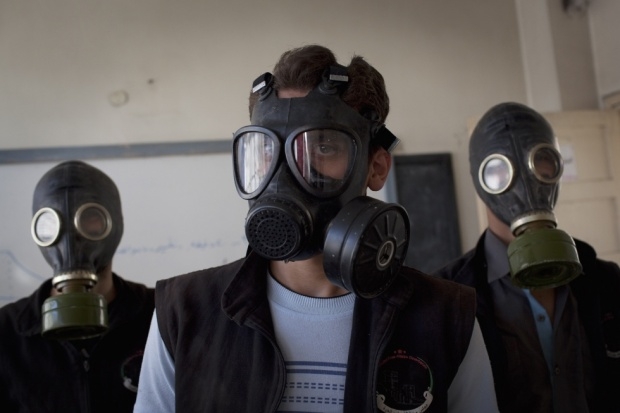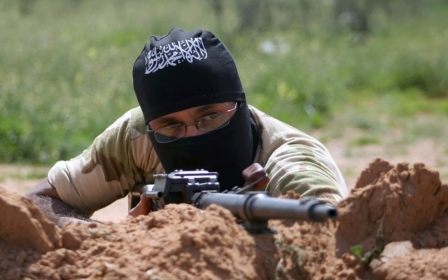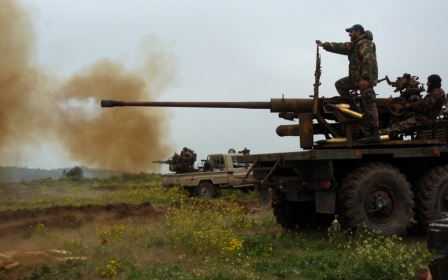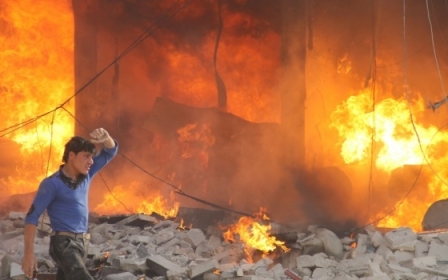UN: Syria to miss deadline for destroying chemical weapons

UN Secretary-General Ban Ki-Moon says Syria will not meet an agreed 30 June deadline to destroy all of their chemical weapons stockpiles, according to a letter obtained by news agencies that he sent to the Security Council.
Damascus has also failed to handover all of its chemical weapons to international monitors, breaking a 27 April deadline set last year. Moon’s letter says 7.2 percent of Syria’s declared chemical weapon stores remain in the country because the regime is not in control of the security situation, which has given rise to “serious concerns about the safety and security” of removing the material, according to the letter obtained by AFP.
The UN-backed and US-Russia brokered deal came last year after threats of US airstrikes followed a chemical attack on a Damascus suburb that killed at least 1,400 people. It included an agreement for all chemical weapons to be destroyed by 30 June this year, which will now pass unmet according to the UN chief’s letter dated 23 May.
“It is now evident that some activities related to the elimination of the chemical weapons program of the Syrian Arab Republic will continue beyond 30 June,” he wrote.
There remain around 100 metric tonnes of chemical weapons in Syria, which are being held at a facility near the capital Damascus. Ahmed Uzumcu, head of the Organisation for the Prohibition of Chemical Weapons (OPCW), says the chemicals are ready and waiting to be transported to the port city of Latakia where Danish and Norwegian ships will transport them to be destroyed by the Americans.
New MEE newsletter: Jerusalem Dispatch
Sign up to get the latest insights and analysis on Israel-Palestine, alongside Turkey Unpacked and other MEE newsletters
Moon says work on destroying the remaining weapons will continue “for a finite period” after 30 June and will include planning for any necessary future work of the OPCW in Syria.
"This will also give sufficient time to put in place appropriate successor arrangements for OPCW to continue any residual in-country verification activities beyond this period," Moon said.
He also expressed concern about alleged ongoing use of chlorine gas by Assad’s forces and urged the Syrian government and opposition groups to cooperate fully with a fact-finding mission. A mission was dispatched earlier this month after France and the United States alleged government forces may have unleashed industrial chemicals on a rebel-held village.
Chlorine, a toxic agent, was not included in last year’s deal due to it being used for commercial purposes and the Syrian government were not required to declare its stockpiles of the gas.
The Security Council will be briefed next week by Sigrid Kaag, head of the joint UN-OPCW mission to Syria, on future plans relating to the issue of chemical weapons in Syria’s civil war.
Middle East Eye delivers independent and unrivalled coverage and analysis of the Middle East, North Africa and beyond. To learn more about republishing this content and the associated fees, please fill out this form. More about MEE can be found here.




